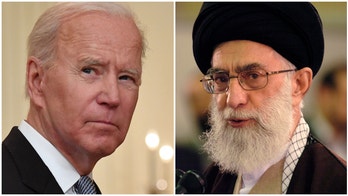Former defense intelligence officer Rebekah Koffler warns that the Biden administration's foreign policy failures have created vulnerabilities for adversarial nations to target the United States "from within." Koffler emphasizes the need for a comprehensive strategy to prevent or win future wars against Russia, China, and other threats.
As the geopolitical landscape becomes increasingly volatile under the Biden presidency, the United States faces unprecedented military challenges. Former Defense Intelligence Agency officer Rebekah Koffler has identified three critical actions the Pentagon must take to deter or emerge victorious in potential three-theater conflicts.

US Foreign Adversaries Pose Threats 'From Within': Former Defense Intel Officer
Koffler, a specialist in Russian war-fighting tactics, highlights the ancient Chinese military strategist Sun Tzu's teachings: to know yourself and your enemy ensures victory. She urges the Pentagon to move beyond a one-size-fits-all approach and gain a deep understanding of the adversaries' mindset and capabilities.
The Afghanistan Papers, released in 2019, revealed that the Pentagon lacked a comprehensive grasp of the country's culture, mindset, and military tactics before invading in 2001. This fundamental lack of understanding contributed to Washington's dismal performance.

US Foreign Adversaries Pose Threats 'From Within': Former Defense Intel Officer
Recognizing that the US military excels in conventional warfare, adversaries have devised asymmetrical strategies that exploit our vulnerabilities, such as over-reliance on technology. Satellites and internet access are crucial for everything from warfare to civilian life, making them prime targets for cyberattacks and anti-satellite strikes.
Russia and China have both expressed plans to inflict a "Cyber Armageddon" or a "Space Pearl Harbor" on the United States, which could cripple our infrastructure, government, and military systems. The Pentagon has been aware of these threats since 2001 but has failed to adequately protect its assets.

US Foreign Adversaries Pose Threats 'From Within': Former Defense Intel Officer
Koffler stresses the importance of having a well-defined war plan that can be adapted to rapidly changing circumstances. She notes that the Pentagon lacked such a plan before the invasion of Afghanistan, resulting in improvised operations and unexpected challenges.
Defining victory in advance helps avoid nation-building and prolonged conflicts like the 20-year entanglement in Afghanistan. The graveyard of empires teaches us valuable lessons that must be applied to future military engagements.

US Foreign Adversaries Pose Threats 'From Within': Former Defense Intel Officer
Koffler's insights emphasize the urgency of addressing foreign policy failures and preparing for the challenges posed by adversaries. By understanding our enemies, minimizing vulnerabilities, and developing robust war plans, the Pentagon can safeguard the United States from potential defeats in multiple theaters of war.













